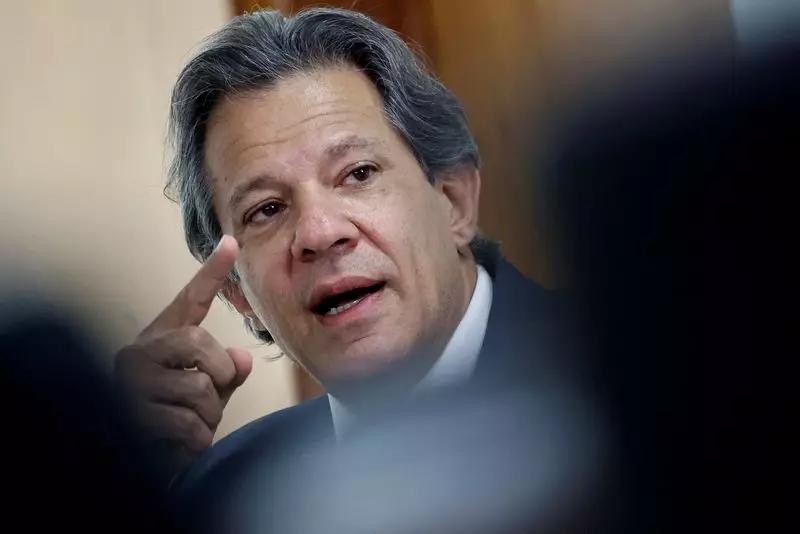In recent weeks, Brazil’s financial sector has been under significant scrutiny due to an evolving fiscal situation that has prompted both concern and speculation among investors and citizens. Brazil’s Finance Minister, Fernando Haddad, has indicated that the government is moving towards resolving some of the key issues surrounding a fiscal package aimed at managing mandatory spending, which has been on an uncontrolled rise. With a frail Brazilian real, currently scraping record lows against the U.S. dollar, the timing of any fiscal measures is critical.
The recent dialogues within President Luiz Inacio Lula da Silva’s administration reflect a concerted effort to alleviate fiscal pressures while accommodating various ministry needs. Although Minister Haddad has confirmed the resolution of lingering obstacles, he revealed that President Lula is keen to extend the proposed cuts to an additional ministry—an initiative that demonstrates the government’s commitment to a comprehensive fiscal strategy. This new layer of negotiation indicates the complexities involved in creating a budgetary plan that satisfies all stakeholders.
A persistent concern has surrounded the government’s reluctance to announce the fiscal package, as the Brazilian economy endures pronounced instability. Market confidence has been eroded, with the Brazilian real suffering in tandem with investor anxiety regarding governmental fiscal commitment. Haddad’s admission that outstanding issues had delayed discussions suggests that even with resolutions, the public lacks insight into how these plans will manifest. Moreover, the decision to announce the package post-municipal elections, scheduled for late October, leaves a sizable gap during which uncertainty can fester.
Meetings between Lula, his chief of staff, and leaders from various ministries such as Health, Education, and Pension over the past week underscore a profoundly cooperative approach to governance during this precarious time. While Haddad maintains optimism regarding the package’s passage through Congress, the repeated insistence on making the measures “more understandable and palatable” implies potential backlash or confusion from legislators and the public alike.
Critically, the expectation that the package could achieve approval within the year is somewhat vague without a firm timeline. Given Brazil’s intricate political landscape, potential legislative hurdles could prove problematic. As the government prepares to engage with leaders from the Lower House and Senate, the success of these discussions will ultimately shape the speed and efficacy of the fiscal measures at hand.
Brazil’s government is navigating treacherous fiscal waters, presenting a mixture of hope and hesitancy as it approaches crucial financial reforms. The focus on mandatory spending cuts reflects a broader understanding of the systemic risks inherent in unchecked expenditure. Yet, the government’s lack of urgency in public announcements, paired with the complexities of multi-ministry negotiations, suggests that only time will unveil whether this strategy will stabilize the economy. Stakeholders must remain vigilant as the administration threads its way through dual pressures—meeting fiscal aims while ensuring political cohesiveness in a potentially tumultuous environment.

